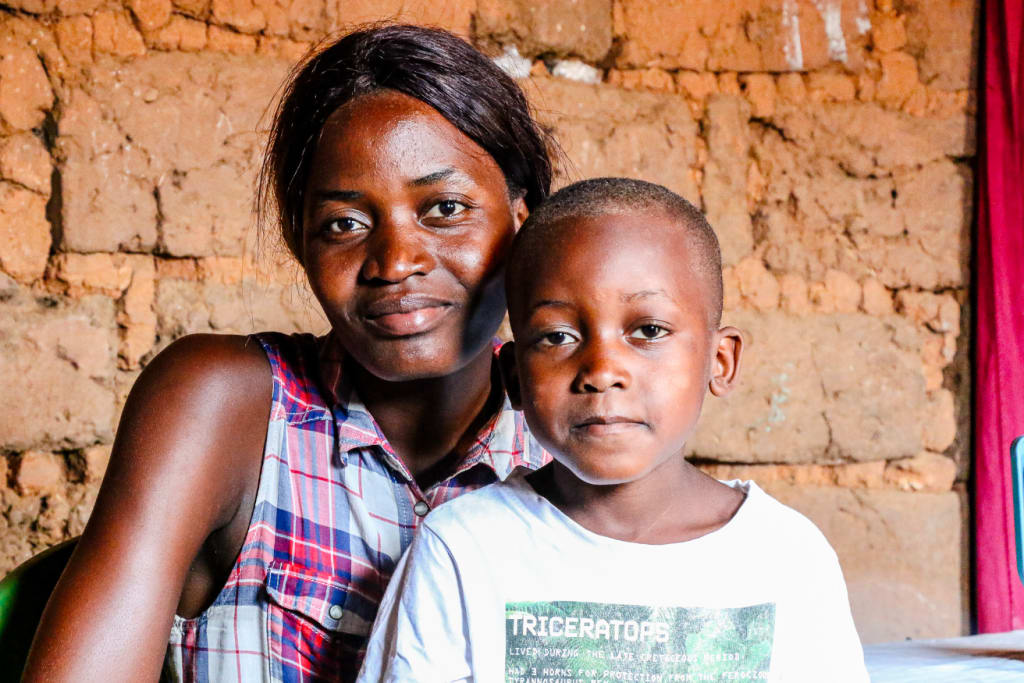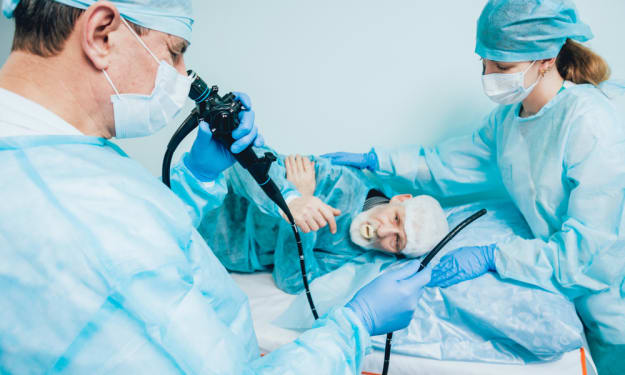How community-based care is driving progress against tuberculosis in Angola
Community health workers provide TB services to underserved populations to encourage testing and treatment.

Cristina João Pedro went to a clinic in Gabela, Angola, because she was feeling weak and having difficulty conceiving a second child, which prompted her to visit the clinic. The nurse saw Christina's condition and suspected that she might have tuberculosis (TB).
Christina suffers from tuberculosis. She took prescription medication, but the cough stopped when it ran out. When she settled in the nearby town of Wakukungo, her condition worsened. Christina consulted an herbal healer who also advised her that she had tuberculosis. As her health deteriorated, Christina went to Gabela's government-run hospital.
"I had an x-ray and when they told me I was very ill, I went home and started crying. That's when I realized it was a very serious illness," Christina said.
Tuberculosis is the second deadliest infectious disease in the world. However, TB services remain out of reach for many. Limited health education, inadequate health services and medical costs leave many patients undiagnosed and untreated. Treatment can take months, and if not completed, there is an increased risk of death, transmission of TB, or drug resistance.
Angola is one of the countries with the highest number of TB cases each year. Tuberculosis remains the third leading cause of death among people aged 15-49. Medical service coverage is low, especially among low-income people in rural areas, and 60% of TB service centers are located in the capital, Luanda. In 2020, the GeneXpert machine used to detect TB was repurposed for COVID-19 testing, which filled an urgent need during the pandemic but could lead to limiting TB case reporting.
But Angola is making progress. A partnership between the Government of Angola, the United Nations Development Program and the Global Fund to Fight TB has reached 95% of its case reporting target by 2022, an important sign that patients are being identified. Of these cases, 80% were cured of TB.
Progress means supporting patients like Christina, who has limited knowledge of TB and feels stigmatized by her diagnosis. Through the local NGO People-to-People Development Assistance (ADPP), UNDP supports community-based TB services in Kwanza Sul, where Cristina lives, and in the neighboring province of Benguela.
ADPP works closely with underserved communities to support community health workers who educate people about TB. Health workers challenge the stigma and misperceptions associated with the disease that can delay diagnosis and undermine treatment adherence.
They also provide patient screening, contact tracing and referral services. They live in the community and are an important link between patients and healthcare facilities. After diagnosis, they conduct home visits and advise caregivers and patients on effective treatment and prevention.
Back at Gabela's hospital, Christina received another prescription for tuberculosis drugs, but those drugs were not yet available for free. She found the ongoing treatment unaffordable, even with her husband's financial support. In search of free medicine, she returned to the hospital, where she met Josefa Pinheiro Segunda Jaime, a local community health worker.
"As soon as the medicine ran out, I went back to the hospital, and that's when I met Josepha, who read my prescription. She told me that the hospital now provides the medicine for free, and with her help, I no longer Need to buy medicine," recalls Christina.
Christina was cured of tuberculosis last year. With Josefa's support, Cristina works on her daily treatments.
“We fixed a day to go to her house and I told her I would be with her until the end. I supported her by delivering medicine to her house and visiting her often,” Josepha said of Christina’s case.
"I didn't have any difficulty helping her fight the disease because the medicines were available, she was responsible and her husband helped with everything," she added.
Josefa strengthens TB control in Angola by providing health education and tailored patient care. She coordinates with Celestina de Carvalho Fortuna, who manages eight other community health workers in the Amboy area. Celestina provides training and operational support, and acts as a liaison between local hospitals and community health workers.
"The best way to tackle TB in our city is through IEC, which is information, education and communication. Because if we communicate well, we can not only prevent individual cases, but also educate the whole community," Celestina said.
Celestina and Josepha are critical to reaching vulnerable populations who may not have easy access to TB services. Their support helps de-stigmatize TB and ensures coordination with community leaders and nearby health agencies to encourage patient support following TB testing and diagnosis.
For Christina, after several attempts to complete her TB treatment on her own, this tailored care proved crucial. She thanks Josefa for educating her about TB. Christina now educates others about TB in her community.
"With the help of Josepha and my husband, I feel safer. It's great to have two people close to me. I don't know where I would be without this support. Now I help other people too , giving them advice, explaining the situation and what the disease is like. When I share information about TB, people respond well,” commented Christina.
The Angolan government, the United Nations Development Program and the Global Fund are working to defeat HIV, tuberculosis and malaria for a fairer, healthier and sustainable future. Together, the three partners are building a stronger, more resilient health system that can meet health challenges and deliver life-saving health services in the future.
In terms of strengthening community-based health services, the TB program has made a lasting contribution to Angola's efforts to promote good health and well-being and related Sustainable Development Goals.





Comments
There are no comments for this story
Be the first to respond and start the conversation.